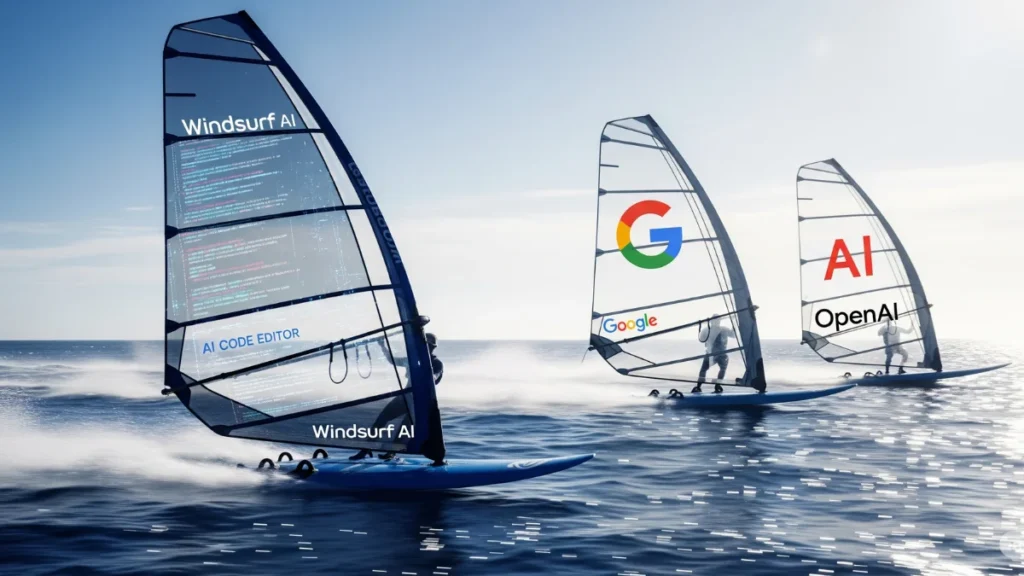Google has quietly struck a talent-rich deal with Windsurf—an AI coding startup previously courted by OpenAI. The strategic move isn’t just about hiring; it’s about outmaneuvering the competition and fueling the future of agentic coding.
Key Takeaways:
- Google acqui-hires top Windsurf staff, avoiding a full acquisition
- OpenAI was reportedly in talks to buy Windsurf for $3B
- Windsurf team to join DeepMind, focus on Gemini AI project
- The deal includes a tech licensing agreement, not company equity
- Could draw regulatory scrutiny amid rising antitrust concerns
Google has secured top AI talent from Windsurf, a red-hot startup revolutionizing code generation. The tech giant’s $2.4 billion deal isn’t a traditional acquisition—but rather a strategic “acqui-hire,” allowing it to sidestep regulatory bottlenecks while gaining a competitive edge in the AI coding space.
This development comes hot on the heels of a potential $3 billion deal OpenAI was reportedly negotiating to acquire Windsurf outright. Google, it seems, has not only outpaced its rival but done so in a way that maintains flexibility and avoids antitrust flags.
The announcement was confirmed by a Google spokesperson on Friday, revealing that Windsurf’s CEO Varun Mohan, co-founder Douglas Chen, and key members of their research and development team have officially joined the DeepMind division. Their primary focus? Accelerating Google’s agentic coding work—particularly the high-profile Gemini project.
“We’re excited to welcome some top AI coding talent from Windsurf’s team to Google DeepMind,” the company stated.
Notably, the deal doesn’t involve Google taking equity in Windsurf. Instead, it secures a non-exclusive license to certain Windsurf technologies, meaning the original company retains independence. Investors in Windsurf will receive liquidity through this arrangement, adding a financial win to a talent-focused transaction.
This type of deal structure is becoming increasingly common in Big Tech. Instead of pursuing direct acquisitions—often subject to regulatory reviews—companies are adopting acqui-hire strategies to onboard skilled teams while bypassing antitrust scrutiny.
Google isn’t alone in this game. Earlier, Microsoft inked a $650 million deal with Inflection AI and Amazon onboarded key personnel from Adept. Meta, too, made headlines by taking a 49% stake in Scale AI. While these partnerships don’t trigger regulatory alarms like full acquisitions, they’re starting to catch the eye of watchdogs.
Windsurf, meanwhile, isn’t shutting down. The company has appointed Jeff Wang as interim CEO and Graham Moreno as President. Around 250 employees will stay onboard as the company pivots to focus more aggressively on its enterprise clients. Windsurf aims to keep innovating while continuing to explore fresh opportunities outside the influence of Big Tech.
For Google, this move represents more than a talent boost—it’s a calculated leap forward in an AI arms race where every developer, model, and breakthrough counts. With Gemini positioned as its next flagship AI system, the newly absorbed Windsurf team could be instrumental in unlocking the next frontier of autonomous software development.
